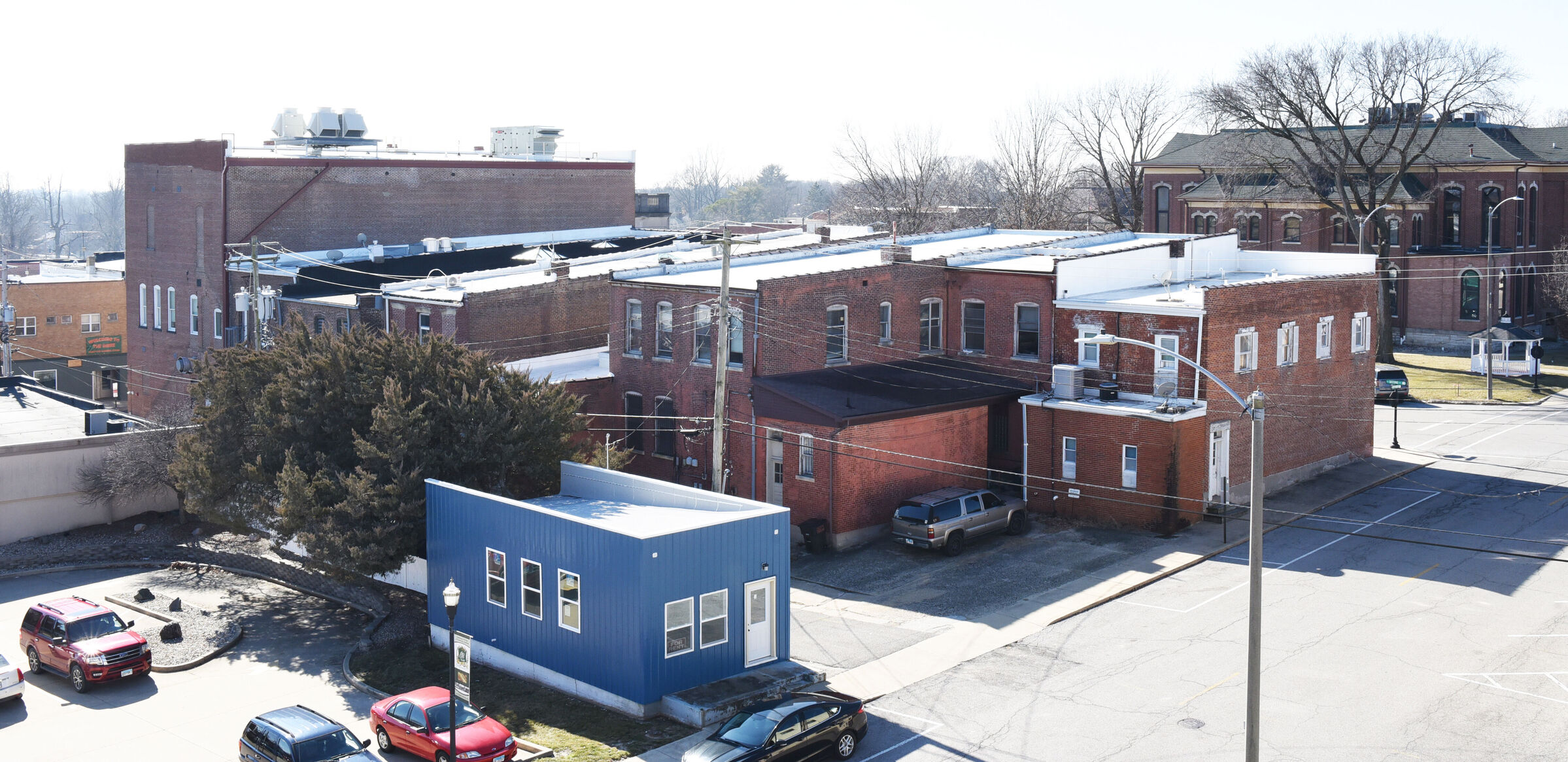A thriving college community needs commitment from both town and gown
Published: February 09, 2024
Author: Dave Bell
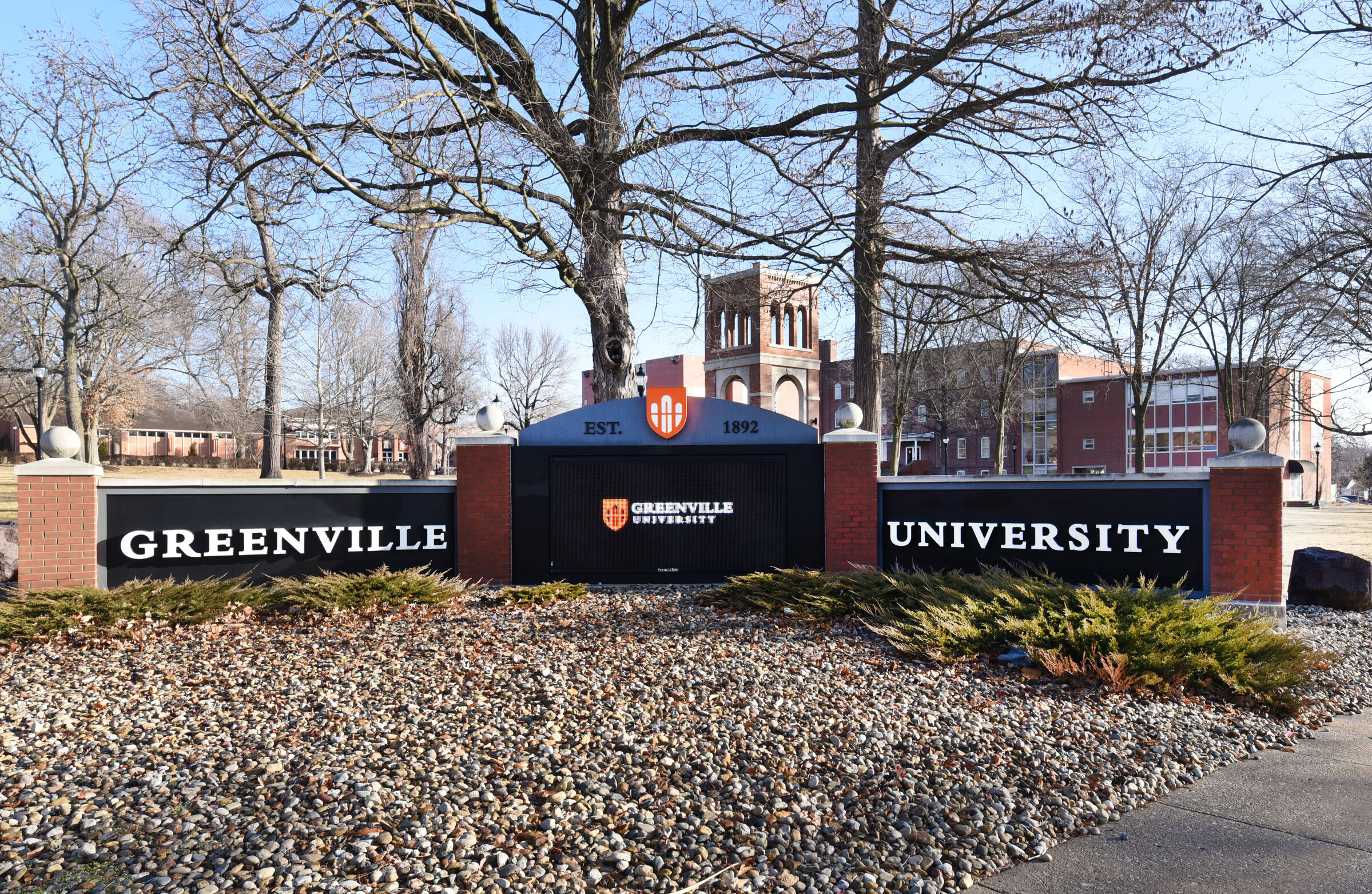 Synergy is defined as “the interaction or cooperation of two or more entities to produce a combined effect greater than the sum of their separate effects.”
Synergy is defined as “the interaction or cooperation of two or more entities to produce a combined effect greater than the sum of their separate effects.”
It works in chemistry labs. It works in businesses. And it works in college towns.
But synergistic actions don’t take place in a vacuum. They must be championed, planned, and executed. And that’s the goal of Greenville University officials as they work with leaders from the City of Greenville, which surrounds the campus.
Breck Nelson, the University’s chief economic development director, said that a 2019 report generated by Econsult Solutions Inc. indicated that the University has a $92 million annual economic impact on the area. Yet, in a very synergistic way, he contends that the area’s economic health is crucial to the growth of the University.
“We can’t have a thriving campus without a thriving town,” Nelson said. “Students want to have some basic amenities in the community where they live nine months out of the year. And they’re telling us that they want more restaurants, more shops, a sit-down coffee shop, and a movie theater.
“I believe that jobs follow people,” Nelson added. “That means we must have a community that attracts people before developers and entrepreneurs will come here. If we make this an attractive community, then people will want to live here. That creates a work force and customers for potential businesses.”
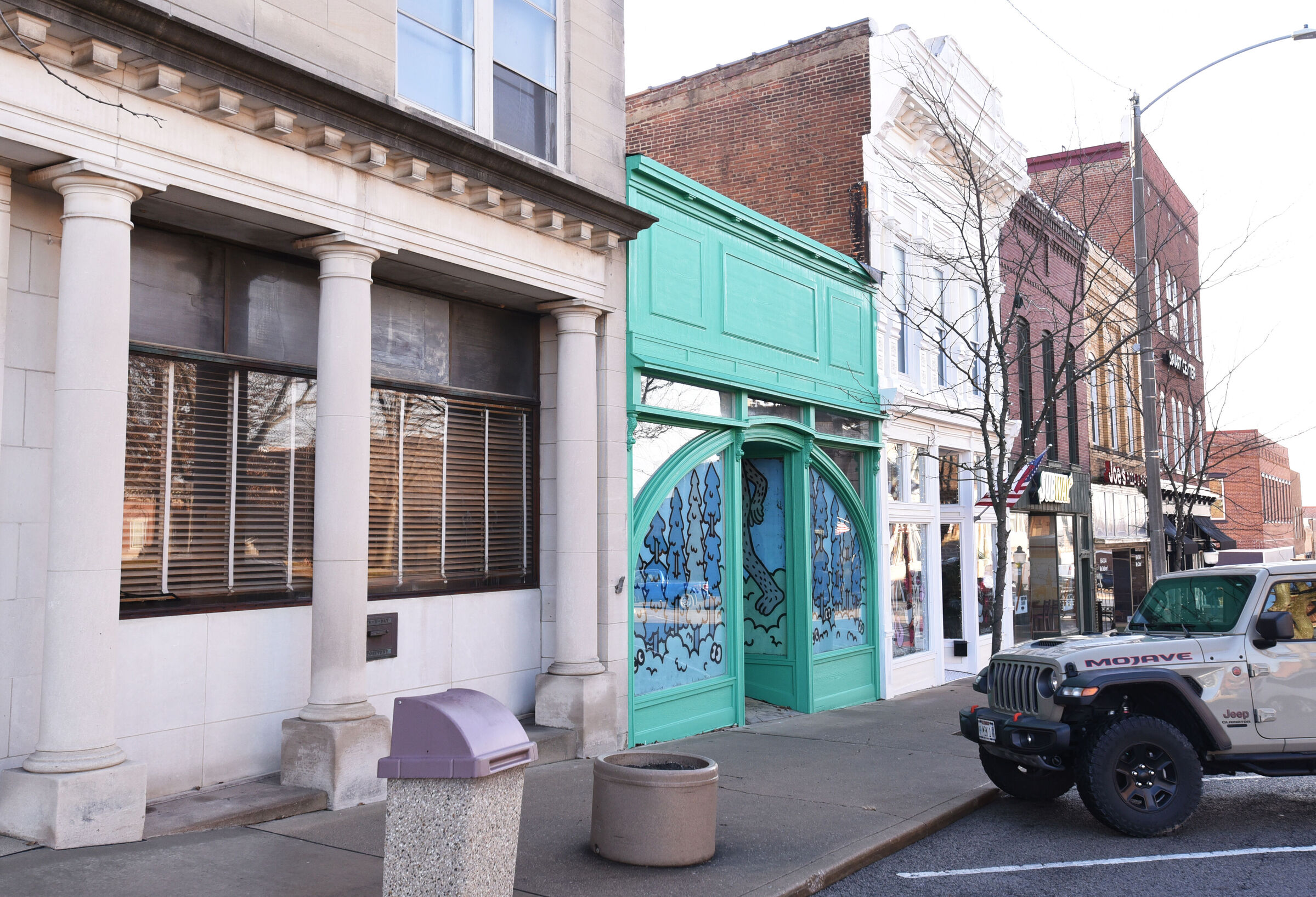 Nelson and his family have taken to heart the challenge of enhancing the business environment. He’s purchased, rehabbed, and launched businesses in three properties around the downtown square. And other projects are in the works.
Nelson and his family have taken to heart the challenge of enhancing the business environment. He’s purchased, rehabbed, and launched businesses in three properties around the downtown square. And other projects are in the works.
Bill Walker, economic development director for the city, also contends that the University’s contributions to the area are significant. “The City of Greenville without Greenville University is a vastly different place,” he said. “The presence of GU is one of cultural impact, for sure. But its economic impact is equally important.”
In fact, Walker credits the University for the recent resurgence of the downtown square, where several new businesses have opened in recent years.
“A good portion of that resurgence can be traced back to the University’s decision to plant the Greenville SMART Center on Greenville’s square,” he said. “Since that time, belief in Greenville as a good place to do business – and do it creatively – has grown significantly. The downtown square is in the middle of a resurgence that will include a downtown plaza and already is home to more than a half dozen new businesses that didn’t exist prior to the SMART Center’s grand opening.”
Elaine McNamara serves in a dual position as the executive director of the Greenville Chamber of Commerce as well as director of operations at The SMART Center in downtown Greenville. She sees her role as fostering a cooperative relationship between the University and the business community.
“Making that relationship work requires collaboration and communication,” McNamara said. “I operate in the center a lot – keeping the business community and the University in synch and working together. When you look at it, the two entities share many interests and goals. We all want Greenville to succeed. But for that to happen, we all must be pulling in the same direction.”
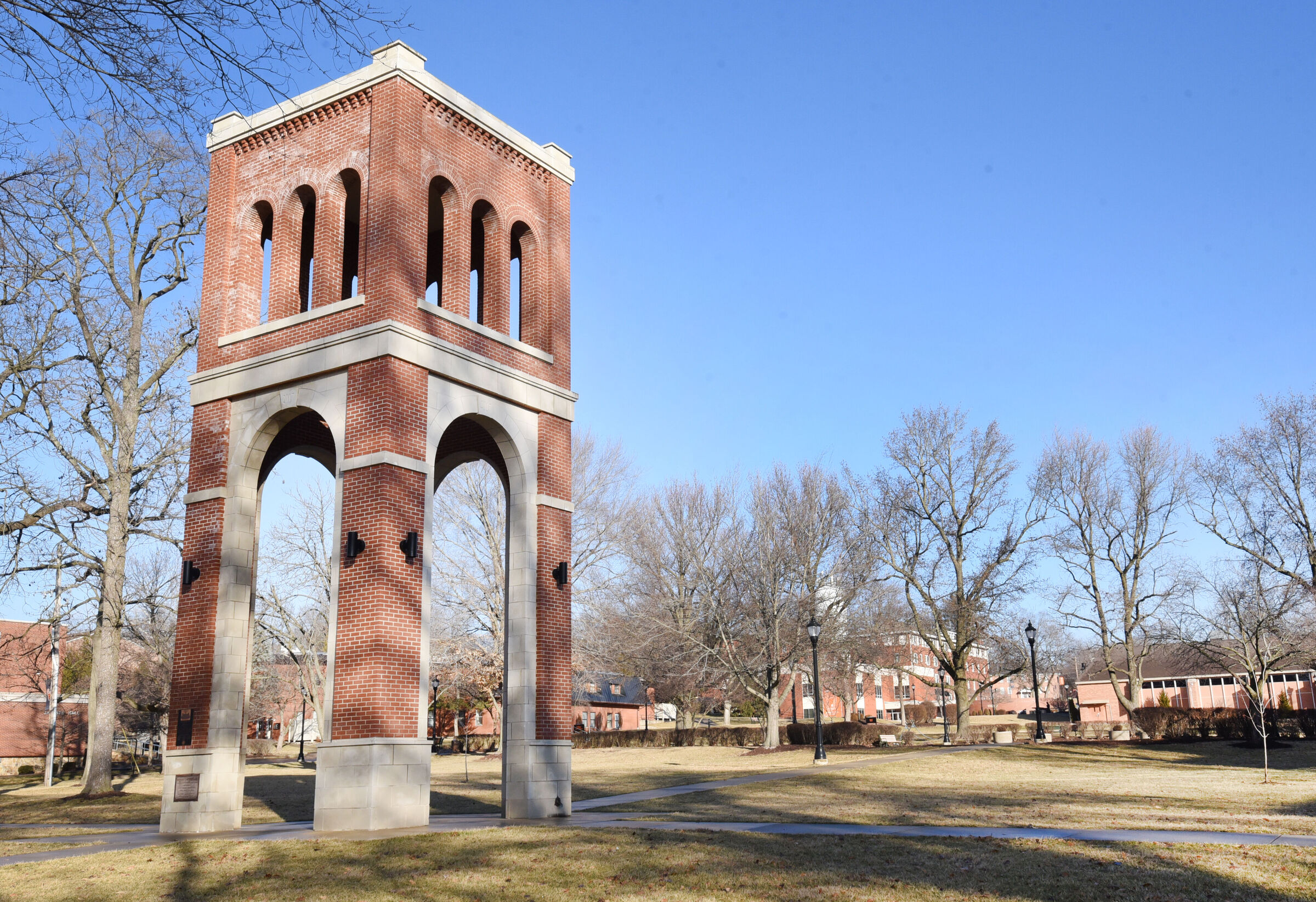 Perhaps no one operates with a foot in both camps more than George Barber, a longtime GU professor and basketball coach, who also serves as Greenville’s mayor.
Perhaps no one operates with a foot in both camps more than George Barber, a longtime GU professor and basketball coach, who also serves as Greenville’s mayor.
“Greenville’s iconic Americana feel continues to attract families and businesses,” said Barber. “We have it all for a small town – a beautiful town square, Governor Bond Lake, nice public parks, an industrial park, and access to transportation. But the biggest feather in the city’s cap is Greenville University. Having the University here puts us in the upper echelon of small towns.
“The city is thankful for the University’s investment in the community by adding new academic programs and constructing facilities like the SMART Center, a new residence hall and upgraded athletic facilities,” Barber added. “The University is the largest employer in town, and it brings more than 800 students into the economy nine months of the year. The city and the university need each other, and it’s my prayer that both will thrive.”
Greenville University President Suzanne Davis also acknowledged the importance of a strong community to the University’s future.
“A growing community is a critical component to attract students and families to the University,” Davis said. “Amenities in the city are seen as attractional features of the University, so we have every motivation to work together to see the rural renaissance of the City of Greenville take place.”
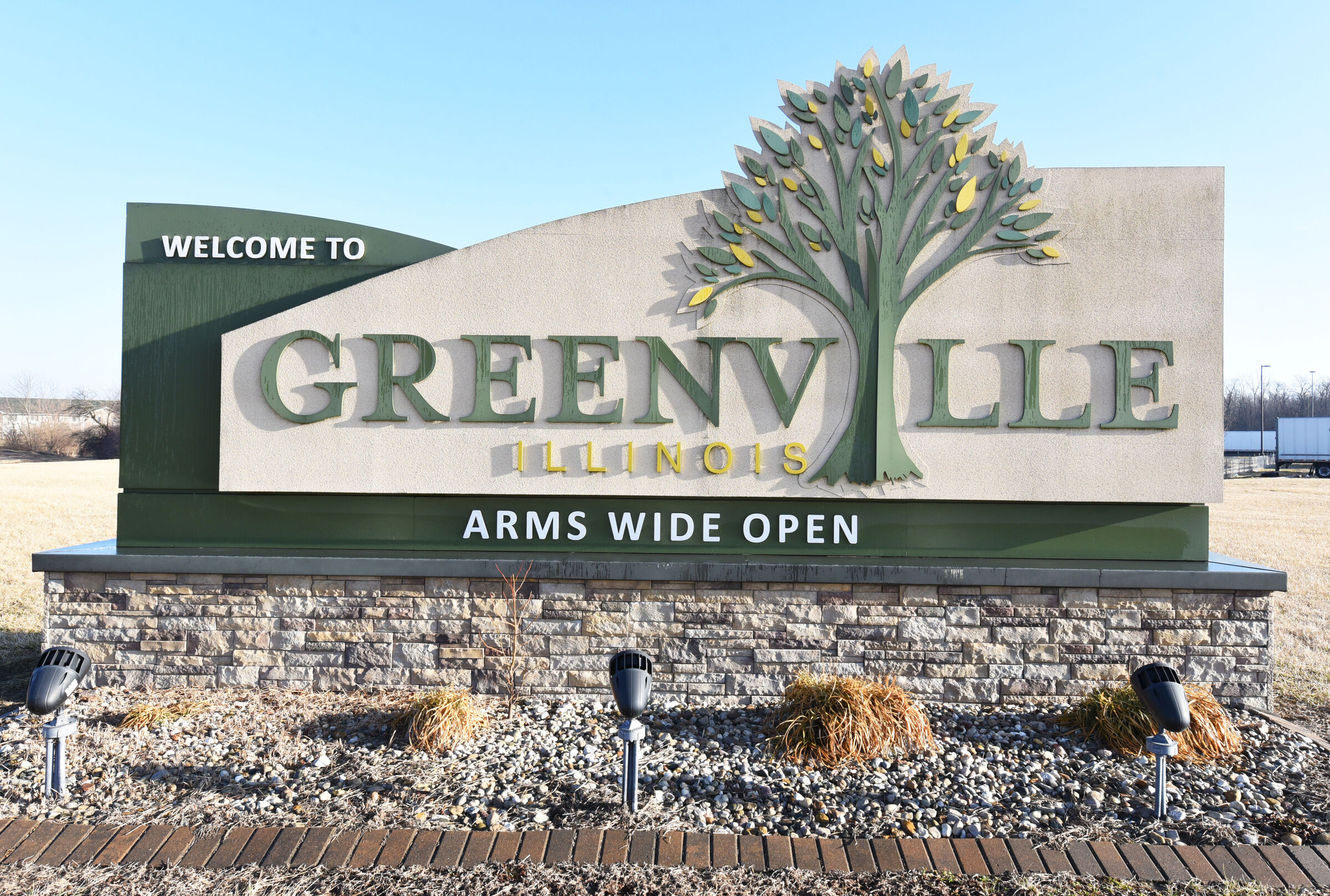 Curt Thacker, who served as president of the Greenville Chamber of Commerce in 2023, said the town-gown relationship has been positive from his perspective.
Curt Thacker, who served as president of the Greenville Chamber of Commerce in 2023, said the town-gown relationship has been positive from his perspective.
“The biggest takeaway from my year as chamber president is that we must keep the thinking-outside-the-box approach going,” Thacker said. “If our community is to thrive, we must continue to take an unconventional approach to growth. The University has been and can continue to be a great partner in that approach. We recognize that the more the University grows, the better it is for the community.
“GU President Davis keeps things as cohesive as possible as we work together to accomplish things in the community,” Thacker added. “She’s been very open with the university’s facilities, allowing city or chamber groups to meet on campus or at the SMART Center. And she’s never turned us down; the answer is always ‘Yes’ when we ask for assistance.”
Such collaboration was key to the University’s agreement with HSHS and St. John’s College of Nursing to launch a nursing program at GU. “Greenville University, St. John’s College of Nursing, and HSHS Holy Family Hospital all have a desire to enhance rural healthcare,” said Davis. “Having a local hospital benefits our students. Having highly educated, caring healthcare professionals employed in the region benefits the quality of healthcare for all of us.”
Taking over the leadership of the chamber in 2024 is Kelly Saeger, president and CEO of HSHS Holy Family Hospital in Greenville. She emphasized the importance of having everyone moving in the same direction.
“It’s the same principle as geese flying in a ‘V’ formation,” she said. “There is significant lift power when we work together. And if, like geese, we honk our encouragement to each other, we’ll be able to go farther and faster than we could on our own.
“We all want a strong community, and the University is certainly an important part of that,” Saeger said. “It’s all about sticking together and moving in the same direction. We’ll go farther in the good times and we’ll be better able to weather the tough times.”
